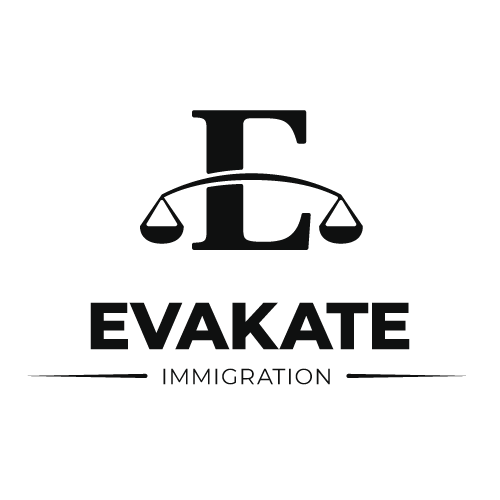Legacy Information on the 457 Visa
The subclass 457 visa is the main visa available for skilled migrants who wish to work in Australia. Prospective visa holders must have their application sponsored by an employer, and can only work in certain roles as nominated by the Australian government. The employer must be registered as an approved business sponsor before they can nominate a role to be filled and before the prospective employee can apply for this type of visa. Successful applicants can work in Australia for 2 years, or up to 4 years for some occupations. While sponsored by their employer they can only work in the nominated occupation and can only work for that sponsoring employer.
We have been advising clients – both employers and migrants – on all aspects of the nomination process since 2005, helping them navigate through the many and varied sponsor requirements. This includes assessing the employee’s suitability to meet the skill requirement for the nominated occupation and assisting them throughout the 457 visa application process. We also provides guidance to approved Australian Standard Business Sponsors, with the objective of ensuring that they remain compliant with their sponsorship obligations, pursuant to the Migration Act (the Act) 1958 of Australia
Once a business obtains a Standard Business Sponsorship agreement, the application process is divided into two parts the 457 Nomination and the 457 Visa Application.
Nomination
Before a 457 visa application can be made, an approved business sponsor must nominate a position in their business that needs to be filled. This position must clearly fit within the scope and scale of the business, and evidence that it is genuinely necessary must be submitted to DIBP. We can assist an employer in collating the relevant documents to meet this requirement.
Occupations
The role that the employer wants to fill must appear as an occupation on the Combined List of Eligible Skilled Occupations. In determining whether the proposed nominated occupation is an accurate reflection of the duties of the position, the Department of Immigration and Border Protection (DIBP) uses the Australian New Zealand Standard Classification of Occupations (ANZSCO).
Both the position description and the 457 visa applicant’s employment and education history must reflect the description provided by ANZSCO.
Salary Level
The salary for the nominated position must meet two requirements. Firstly, the remuneration must be above the Temporary Skilled Migration Income Threshold (TSMIT). This threshold is set by DIBP each year and is currently $53,900 plus superannuation. Secondly, the proposed salary must be within the market rate for the role. This ensures that the applicant will be paid in line with Australian employees in comparable roles.
Note: Some occupations will be subject to DIBP caveats that set a minimum remuneration level that is above TSMIT.
Other requirements/considerations
Labour Market Testing – For some nominated occupations, the sponsoring business must have conducted labour market testing in the 12 months prior to making a nomination application. Labour market testing might be having unsuccessfully advertised for a role, for example. Evidence of market testing may need to be supplied as part of the application.
Visa Renewal – Employers can specify how long they plan to employ the 457 visa holder for. The visa generally lasts for 2 years but can be granted for a maximum of 4 years in some cases. However, it is possible to apply for a further 457 visa if the employee is required for the nominated position for longer. In some cases, where the employer wishes to support their sponsored employee, there are pathways to permanent residence such as the Employer Nomination Scheme or the Regional Sponsored Migration Scheme.
Costs – The sponsoring business is legally required to meet all costs associated with becoming a standard business sponsor, as well as those related to submitting a nomination application. DIBP regulations specify that the sponsoring business cannot seek to recover any associated fees once the visa is approved.
457 Visa application
The Australian 457 visa application relates to the individual who will be filling the nominated position.
Skills and criteria
The applicant must have the skills required to fulfill the role. When examining a 457 visa applicant’s skills and qualifications against the nominated position, DIBP case officers cross-reference the position description supplied in the employer’s nomination application with the visa applicant’s qualifications and work references.
If applicants are not from an exempt country (UK, USA, Canada, NZ or Ireland), they will need to meet English language requirements through either proof of meeting minimum standards in an English language test (IELTS, PTE, etc.) or provide evidence that they have studied for at least 5 years in an institution that uses English as the language of instruction.
Including family members
It is possible to include dependant family members on the subclass 457 visa, but:
• There are strict definitions of who qualifies as a dependent family member. Note that adult children over 22 years old may not qualify
• The sponsoring employer needs to agree to the inclusion of the family members
• Any family members included in the visa application must meet all relevant health and character criteria.
If a dependant family member is included on a 457 visa, they will be given unrestricted employment rights to work in Australia.
Visa Validity
If the employee is no longer employed because they resignation or are their employment is terminated, the sponsor must notify DIBP. The visa holder has a period of 90 days to lodge a new visa application or they will have to leave Australia.
Costs
The costs for the subclass 457 work visa application can be paid by the sponsoring business or by the individual overseas worker.

